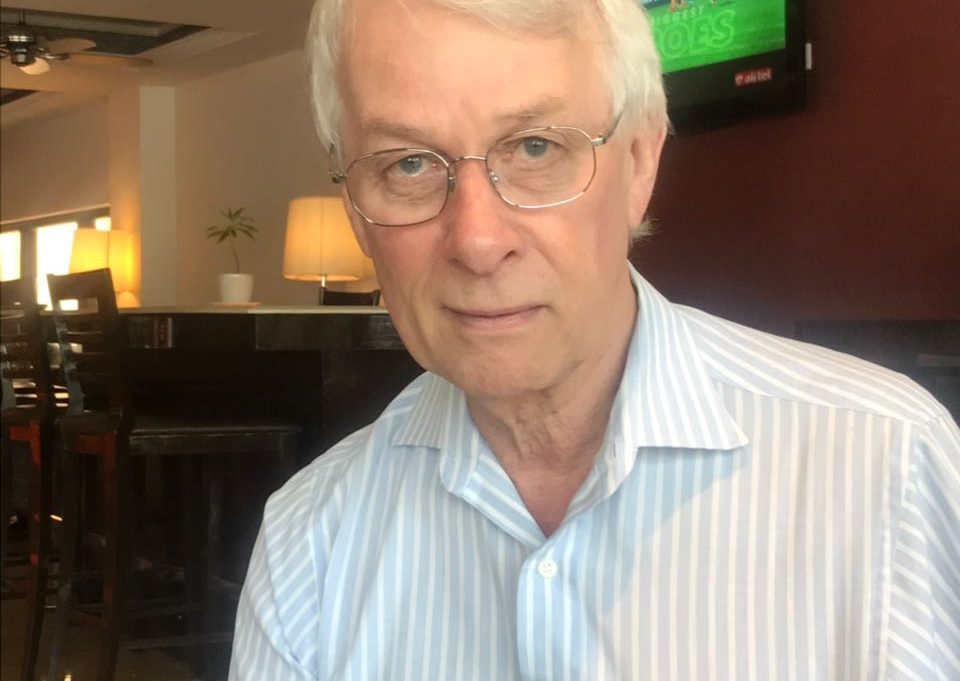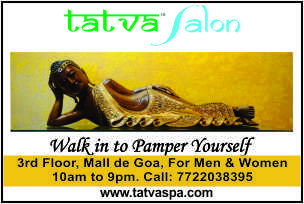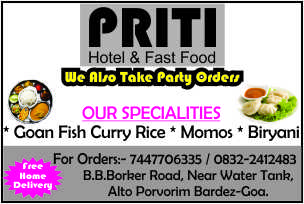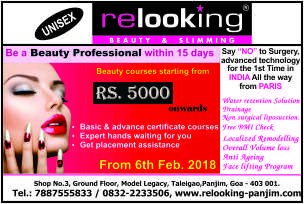Miramar (Goa) While Nobel Prize series kicked off in Goa from today onwards, the prize winner scientists have descended in the State to interact with the students, academicians, researchers and common people. The Neutral View caught up with UK-based world renowned Nobel Prize winner Richard Roberts. We bring to you his interview:
- You have been in and out of India addressing students. How different is the visit this time?
- This is a different reason for coming. The Nobel Media events are put up are like dialogues. Mostly when I travel, I just give talks so people listen. Nice thing about this is that there are interactions between speakers, we can talk about the things that we know about, we can ask one another questions, and then we can respond to questions from the audience when they come in. that’s nice because I like being asked questions that I don’t know the answers to, sometimes that makes you to think about the different things.
I have a standard lecture which I call as a path to the Nobel prize. But the most important part of my talk from my perspective is that I emphasise the importance of luck. When something lucky happens, you need to take advantage of it.
- Do you mean you require luck to win a Nobel Prize?
- What it takes to win a nobel prize is luck, it’s absolutely true! The kind big discoveries that makes you to the nobel prize are not something that you can say ‘well, I’ m going to make this discovery’.
You are working in some areas, you are asking some questions and might be the answers might turn out to very important. Or may be it might be of less important and yet another piece of knowledge but very often when you ask these questions something happens. You might get into something new phenomenon comes up you did not know before and you follow that.
If you ask most of the Nobel laureates they will say the same thing that they were working in an area and they discovered something that they were not expecting.
- You are very critical of the pharmaceutical companies on their corporate style of handling the human problems
That is the worst thing that can happen to. If you have very good drug on something and you find it as a way to cure disease then you can’t sell the drug anymore. That’s okay. But I am objecting when pharmaceutical companies say that they are interest to find something that is going to cure because they are not.
- Is it disheartening for any researcher?
It is disheartening when a researcher see that his research is not benefitting the mankind. I feel whatever you discover should help the people.
Q.What has been your experience?
Discovery that I made in the year 1977, the first clinical application was last year, 40 years later. But with the kind of research that I do, I expect that it will take a long time, before it will lead into clinical applications or other applications.
- Has life changed after winning a Nobel?
The main thing that changed is that I get invited to go and talk to people and visit exotic places. That’s the principle change that took place. I tend to work in some area will I get bored and then I do something differently. Still I am a normal scientist. But I believe that the science should be pushing to try to make difference in the world, because people do listen to us.
- Why are scientists in third world countries not getting Nobel prize in science or medicine?
- Lot of time, the opportunities that is required to do research depends upon the availability of money. In many developing countries it is not just that amount of money available for the researchers. Quiet a lot of good people leave the country and go abroad and work in labouratories abroad and make interesting discoveries abroad. Lot of people who do not get an opportunities to go back to their home land make discoveries outside their home country. One of the thing I would like to see is that there should be opportunities for people to get trained abroad but they should get back to their countries, which will make a difference in their home countries.
- After winning Nobel, what is your aim in life now?
My aim in life is to convince politicians that science is important. They should listen to the scientists and not listen to the people who are anti-science, who are people speak lot of pseudo science.
At the movement one of the thing that is important is GMO, these are the future of agriculture. There is so much nonsense spoken by anti GMO people by gree peace activists, it is not just true. Most of what they say is not true, yet they are having a big effect on people and politics.
I will be organizing nobel laureates to support the GMO and explain the GMO which is very important because they can help countries. Here in India, the GMO Cotton that is produced makes the huge difference. But there are many other things that can be done in India too. When they are against it, they tell lies, they are not honest in environment protection. This is very disappointing. They are killing people, literally they are killing people, it’s terrible.



























